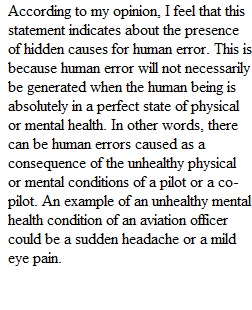


Q "Human error is a consequence, not a cause." This statement goes straight to the heart of the organizational approach to safety management. What do you think this statement means? Is human error indeed always a "consequence"? If so, what is it a consequence of?
View Related Questions